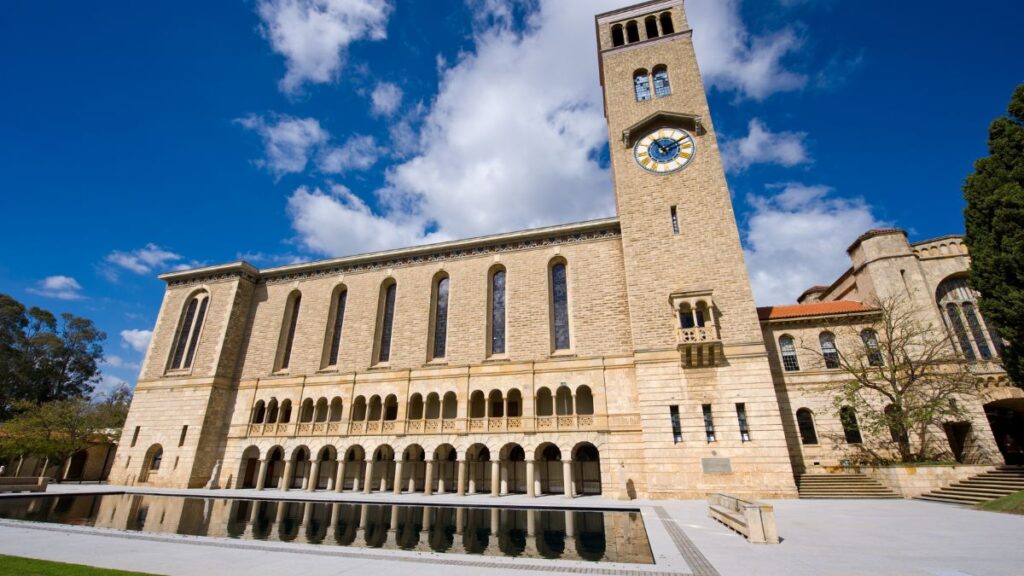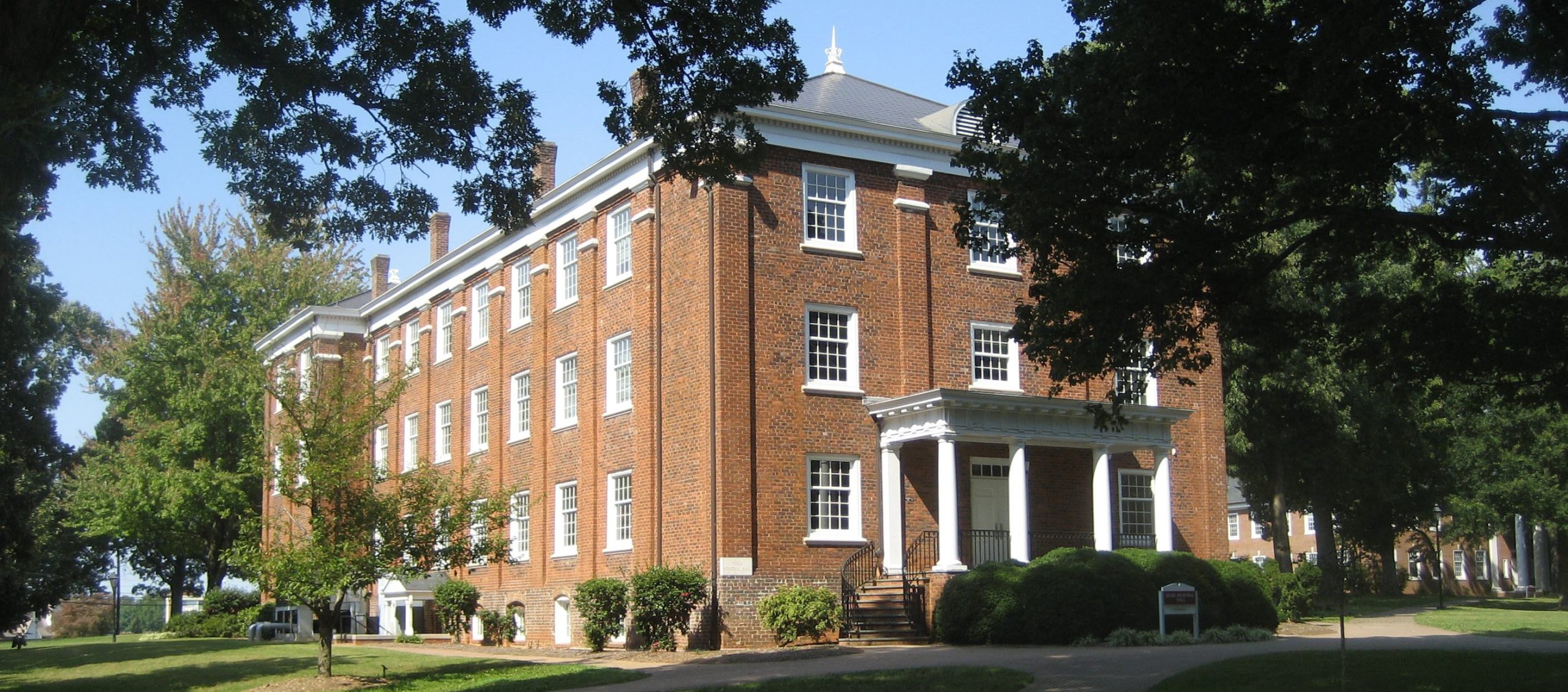The Early College at Guilford is an innovative program that allows high school students to take college-level courses and earn both high school and college credits simultaneously. It is located on the campus of Guilford College in Greensboro, North Carolina, and is open to students from any high school in the surrounding area.
Through the Early College at Guilford, students have the opportunity to get a head start on their college education by taking college-level courses in a variety of subjects, including math, science, social science, and humanities. These courses are taught by college professors and are rigorous and challenging, just like regular college courses.
One of the main benefits of the Early College at Guilford is that it allows students to save time and money on their college education. By earning college credits while still in high school, students can potentially graduate from college earlier and with fewer overall credits, which can lead to significant savings on tuition and other college expenses.
In addition to the academic benefits, the Early College at Guilford also provides students with a taste of college life and helps them develop the skills and independence they will need to succeed in college and beyond. It is a great opportunity for highly motivated and academically ambitious students who want to challenge themselves and get a jumpstart on their college careers.
The Early College Initiative

The Early College Initiative is a program that allows high school students to take college-level courses and earn both high school and college credits simultaneously. It is designed to provide students with the opportunity to get a head start on their college education by taking college-level courses while still in high school.
The Early College Initiative is typically offered at colleges and universities, and it is open to high school students from a variety of schools in the surrounding area. Students who participate in the Early College Initiative have the opportunity to take college-level courses in a variety of subjects, including math, science, social science, and humanities. These courses are taught by college professors and are rigorous and challenging, just like regular college courses.
One of the main benefits of the Early College Initiative is that it allows students to save time and money on their college education. By earning college credits while still in high school, students can potentially graduate from college earlier and with fewer overall credits, which can lead to significant savings on tuition and other college expenses.
In addition to the academic benefits, the Early College Initiative also provides students with a taste of college life and helps them develop the skills and independence they will need to succeed in college and beyond. It is a great opportunity for highly motivated and academically ambitious students who want to challenge themselves and get a jumpstart on their college careers.
About Guilford County

Guilford County is a county located in the Piedmont region of North Carolina. It is the third most populous county in the state, with a population of around 523,000 people as of 2021. The county seat is Greensboro, which is also the largest city in the county and a major hub for education, culture, and commerce in the region.
Guilford County is home to a number of higher education institutions, including the University of North Carolina at Greensboro, Guilford College, and Bennett College. It is also home to a number of historical sites, including the Guilford Courthouse National Military Park, which commemorates the Battle of Guilford Courthouse that took place during the American Revolutionary War.
The county is known for its diverse economy, which includes manufacturing, healthcare, education, and professional services. It is also home to a number of major corporations, including Honda Aero, Cone Health, and Syngenta.
Overall, Guilford County is a vibrant and dynamic place to live, work, and study, with a rich history and a bright future.
Latest Posts
- Head Start Programs at Queensland Universities

Does Head Start ring a bell? If you are a high school student or perhaps a parent or a guardian of one, chances are, you are very familiar with or somehow have heard of it.
This is a program by the Victorian government that supports and encourages high school students to enrol and study first-year college or university subjects while they are still in their Year 10 to 12 of education. This gives would-be college freshmen to head start on their future careers by developing their academic skills and broadening their knowledge as they dip their toes in advanced learning while being able to interact with university students and personnel.
Depending on the university you target to enrol in, the name of the program may differ. Some schools call it differently and may cater to different high school year levels, but the objective is all the same.
Universities Offering Head Start Program
University of Queensland
Under this university, the program is called the Enhanced Studies Program or ESP. This offers Year 12 students an opportunity to extend their knowledge, abilities, and skills through the completion of one subject in the university.
This program prepares you for university life as you attend classes, complete assessments, and feel what it’s like to be on the college campus. What’s nice is that this requires no tuition fees.
Once you’ve completed the ESP, you’ll get a corresponding adjustment factor for your selection rank at the university. You will automatically receive credit for the subject completed when you eventually enrol in UQ for the degree for which it is relevant.
Queensland University of Technology
In the case of Queensland University of Technology, the program is called START QUT. This program specifically offers Year 11 and 12 students a chance to dip their toes into university life by trying out subjects from the course they have an interest in.
With this, you can try some potential areas of interest while enjoying university life, which can make you appreciate the difference between high school and university. Get full university experience by attending lectures, workshops, and tutorials, as well as being part of the community of fellow QUT students.
You are allowed to take two units maximum or one each semester. For Year 12, you can take one unit in the summer before the start of Year 12 and semester 1 of Year 12 proper.
Griffith University
When it comes to this university, it’s named GUESTS or Griffith University’s Early Start to Tertiary Studies, which targets the same thing. That is to motivate students under Year 11 and Year 12 to head start their university studies.
The good thing about this is that you have the option to learn whether on campus or online as both programs offer lectures, workshops, and tutorials besides your school study load. However, either way, you need to occasionally physically attend school for examinations and other on-campus events.
All of these lead you to a 10-credit point course that you can use later on. To complete these, attendance of around two to four hours of classes each week is a must.
University of the Sunshine Coast

University of the Sunshine Coast’s “Headstart” challenges students between Year 10 and 12 to advance their learnings and at the same time, eventually, gain university credits when they officially enrol in college after finishing high school.
With this, you can take up one university subject per semester at the start of semester 2 of Year 10 up to Year 12. Please note that the first subject you take will be free of charge and the rest of the succeeding subjects’ rates are reduced as they are subsidised by the UniSC.
“Undertaking several business and marketing subjects at USC while I was still in high school gave me a headstart towards my degree. This allowed me to complete the remainder of that degree as a part-time student while I built up my business. Having additional skills in business and marketing has really helped me run my Sunshine Coast pressure cleaning company.” – Peter, owner of House Washing Sunshine Coast and local resident of Noosaville.
University of Southern Queensland
For UniSQ’s version of Head Start, this is available for high-achieving students under Years 10 to 12. Similar to all Head Start courses offered by other universities, it lets you enrol in their subjects in advance which you can use once you start your degree later on. In other words, these will all be credited into any related UniSQ degree of choice, provided that you meet their prerequisites.
In addition to this, you will also earn two credit points for each completed course towards the Queensland Certificate of Education (QCE). The first course is free and the rest are discounted.
Central Queensland University
Get ahead with your future college degree with Central Queensland University’s Start Uni Now or SUN program. This is literally giving you the opportunity to complete high school and advance a bit of your future university studies that’s applicable when you’re completing your Year 10 or currently in your Year 11 and 12.
Apart from gaining an advantage in your learning and earning your future university course credits, you’ll have an early experience of what college life is early on. This gives you less stress fitting in when the actual time comes.
When you’re already in your senior school years, you are allowed to take 24 credit points at a maximum of four equivalent units. One of the eligibility requirements is to pass all your subjects with at least B grades.
Bond University
This university has this program a bit differently in the sense that it is done in a fast-paced style and that is through a two-day workshop. They call it the Bond Business School Year 12 Extension Program which offers under this curriculum to enrich experience in high school and at the same time, prepare them for their future university life.
Included in this two-day affair are access to industry-leading academics, unique learning opportunities, as well as to enhance final exam preparation. Successful completion of the program entitles the students to receive advanced offers into their chosen course or degree, provided that they are able to meet academic requirements.
Scholarships will also be awarded to part-fee scholarships ranging from 25% to 50% tuition fee discounts at the university, excluding Medical Program. Additional scholarships will also be given to schools that contribute at least four students to the program, which is valued at $5,000.
- Vocational and Educational Training Courses in Western Australia

The role of vocational education and training cannot be undermined as its contribution is crucial to Western Australia’s economy. The constant change in future job outlook that’s directly proportional to the economy’s growth gives rise to more skilled workforce requirements needed to be filled. And here’s where the VET sector comes in.
VET enables students to acquire relevant qualifications and specific skills that are needed in different types of employment. It’s a good thing that the Western Australian government fully supports this endeavour by putting investment in providing training for potential skilled workers. The subsidy includes traineeships, apprenticeships, and qualifying priority industries.
We spoke to Greg Winchester, owner and director of House Washing Perth about his experiences. Greg says that undertaking Vocational and Educational training courses in building and construction during grades 11 and 12 of high school helped him learn more about that industry. He recognised the need for Perth pressure washing specialists who better understand every facet of house exterior cleaning, while working on construction sites as part of his training. He credits that opportunity for fast-tracking his progress to becoming a successful business owner.
Popular VET Courses to Choose From
Agriculture, Animals, Science, and The Environment
If you’re interested in farming, animal care, landscaping and horticulture, and land management, training in these fields can land you to some fulfilling careers. As the names suggest, available careers after training are as follows: veterinary nurse, equine care, farm worker, viticulturist, horticulturist, landscape designer, etc.
Other options also include land management, conservation of forests, rivers, and oceans, and environmental impact assessments. If you want a more unconventional job, perhaps a career that involves the maintenance or preservation of Aboriginal heritage and culture might interest you.
Aerospace, Maritime, and Logistics
Aerospace covers a wide array of sectors and is not limited to manoeuvring actual vehicles and vessels and definitely not limited to the local route but international as well. These include maintenance and manufacturing, ground crew, technical support, and even defence.
Maritime provides high-quality training in fishing, aquaculture, as well marine studies, operations, and engineering. These can lead you to careers in marine biology, shipping, and commercial fishing.
Logistics, on the other hand, pertains to supply chains that include warehousing, freight, local and international shipping, storage, distribution, or as basic as being store personnel.
Automotive
Take this course if you are into anything vehicle or transport-related. This industry covers the production and maintenance of all types of land automotives, including machinery and plant vehicles.
What’s good is that this industry can also open doors to opportunities in the field of research and technology in terms of fuel sustainability and automotive safety. Jobs may include repairs and maintenance, paint, mechanical technology and electrics, plant machinery, and power equipment, among others.
Building and Construction

Another course that covers a wide industry, building and construction entail residential and commercial architecture, engineering, carpentry, plumbing, painting, roofing, and electrical, among others. They also involve anything related to roads, railways, dams, power supplies, and the likes.
If you are not into the “dirty” part of the job, you may opt to be part of the design part team that concentrates on the architecture and building layout. These are where your creativity and imagination can come to life by specialising in aiding in the creation of sustainable and environment-friendly designed structures.
Business and Finance
Perhaps the recognition of being one of the busiest and fastest-moving industries in many aspects goes to business and finance. If this is the kind of work environment you enjoy, this might be a perfect fit for you. This opens career opportunities for you in the fields of accounting, banking, human resources, marketing, sales, real estate, and more.
You can even hone your skills to become a leader of an organisation or be an owner of your own business one day. Training in this course also includes teamwork, problem-solving, as well as communication skills that are crucial in the business world.
Education and Community Services
More often than not, your chosen career is your calling in life. If you aspire to make a difference in other people’s lives, then education, community services, or local government might be for you.
For education, the career options include education assistant, early education, aged and disability care, mental health and funeral or bereavement support, and such. Community services pertain to areas of studies that deal with family and domestic violence, parenting and relationships, mental health, alcohol and substance abuse, adolescent development, and housing, to name a few. On the other hand, local government training can give rise to careers in local council or community roles like being a park ranger and such.
Hospitality, Retail, Tourism and Events
These industries are considered the largest employers in the world as these are what people from around the globe come in for when they visit a country. They are the “best foot forward” of a location so it’s crucial to place the best people in the job.
Training in these fields can open careers as restaurant chefs, café managers and baristas, travel agents, sales and marketing, and even other managerial roles in hotels, etc. For events management, exciting jobs await you involving concerts, festivals, conferences, expos, and such with roles such as the developer of events proposals, sponsorships, marketing and promotions, budgeting, site management, etc.
Information, Technology, Library, and Digital
Since we are now living in a digital world, these fields offer endless possibilities in terms of your profession. Regardless of your chosen media, you’ll never run out of careers to pursue. Training can land you roles in network management and administration, game development and design, software programming, website development, 3D animation, and the likes.
You might also want to be involved in movie or television production where you can land a job in audio and video editing, animation, digital media development, storyboarding, etc. If you are more interested in radio, you can also try announcing and sound production, among other options.
Other VET Courses
If you still can’t find the right course to take from above, other options are still available below and their corresponding potential jobs:
- Creative Industries – fashion design, interior design, visual arts, drawing, film and photography, printing and graphic arts, and even music.
- Engineering and Mining – refrigeration and air conditioning mechanics, process plant operators, machinists, welders, sheet metal workers, fitters, boilermakers, and other tasks in process plant operations.
- English, Languages, and Foundation Studies – these are for those who have non-English backgrounds whose target jobs require language literacy or who just want to improve their literacy skills which can be very relevant in their career of choice.
- Health, Personal Services, Sport and Fitness – massage therapist, sports fitness coach, makeup artist, hairdresser, beauty therapist, nurse or anaesthetic technician, ward or patient services assistant, as well as a trained assistant for professionals such as physiotherapists, occupational therapists, speech pathologists, and the likes.
- Early College Programs in North Carolina

For a little bit of history, the idea of “Early College” came from Governor Mike Easely when he launched “Learn & Earn” in 2004. The entire program eventually became collectively called the Career & College Promise (CCP) and was officially established on January 1, 2012. This was through an authorization by the Session Law 2011-145, the Appropriations Act of 2011 given to the State Board of Education and the State Board of Community Colleges.
The CCP is comprised of three pathways; one of which Early College is part of. They are Career & Technical Education Pathway (CTE), College Transfer Pathway (CTP), and Cooperative Innovative High School Programs (CIHSP), otherwise known as Early College.
Early College is an initiative that aims to provide Grades 9 to 12 students with tuition-free opportunities to earn either a two-year degree or two years’ worth of transferable credit within four to five years. I was talking to my aussie friend, Brad Gall, who runs a Brisbane HVAC company, and he said he did something similar in Queensland, although he wasn’t able to earn quite as much credit towards his degree.
With this, the target students gain early on the skills needed in the growing workforce demands. You can apply for this program from your local middle school and speaking to the guidance counselor is highly encouraged so you can be properly guided with everything you need to know.
Early College Program Explained
The main goal of this program (CIHSP) is to draw under-represented students to pursue college education. These include those who are considered minorities, those who came from low-income families, and those with parents who never went to college.
However, it is not to be misconstrued as exclusive to those who fall into the categories mentioned. In fact, any Grade 8 student may apply, and selecting who qualifies will be based on criteria set by the chosen local committee and the state of North Carolina.
Potential qualifiers are expected to show eagerness, enthusiasm, and determination to accept the rigorous coursework they will potentially be facing. They should also be flexible to various learning approaches, as well as be adaptable to new environments, and form productive relationships with new sets of people at school.
The Early College program is on every college campus in North Carolina unless there is a waiver that says otherwise. These campuses only accept a maximum of 100 enrollees per grade level.
Please note that CIHSP status is only valid at the school/college that is partnered with the high school where the student is enrolled and is not valid anywhere else. Also, they may NOT be enrolled in the following:
- Associate in General Education or General Occupational Technology programs
- Developmental courses
- Non-curriculum transition courses
- Audit courses
- Transition courses offered through CCR
Two Other Pathways of CCP

As mentioned, the CCP program aims to provide students with dual enrolment, that is high school and college at the same time. At the end of the program, they earn a diploma, a certificate, or a degree that the state or different industries recognize, which can land them at least an entry-level job appropriate for their skills.
The good thing is that this is tuition-free, except for certain fees like textbooks. Also, if they opt to take at least 9 credits, lab fees and other activity fees will be out-of-pocket.
The Early College or the Cooperative Innovative High School Programs (CIHSP) has already been tackled. The other two will be discussed below.
Career & Technical Education Pathway (CTE)
Career and Technical Education Pathway leads to a diploma or certificate that is aligned with a career cluster in high school. Either that or the Workforce Continuing Education Pathway (WCEP), which leads to a diploma or certificate aligned with a career cluster in high school.
To be eligible, the student must be in junior or senior high school as of the applicable academic term’s first day, must have at least an unweighted GPA of 2.8 on high school courses, and must be ready to take an approved placement or assessment test in Reading, English, and Mathematics and eventually pass it.
They should also secure a recommendation from the high school principal, together with the rationale behind the recommendation in place of the GPA requirement. They also need to secure a recommendation from either the college’s Chief Academic Officer or Chief Student Development Administrator.
Please note that these recommendations will not be honored for CTE pathways if they include the Universal General Education Transfer Component (UGETC) course. Otherwise, they must follow the CTE eligibility criteria.
College Transfer Pathway (CTP)
On the other hand, CTP requires the completion of transfer courses of around 30 semester hours, which include Mathematics and English, but excluding the Associate Degree Nursing (ADN) pathway.
The credits earned through this tuition-free course go toward the following and a four-year degree:
- AFA Visual Arts
- Associate in Arts
- Associate in Arts in Teacher Preparation
- Associate in Engineering
- Associate in Fine Arts
- Associate in General Education – Nursing
- Associate in Science
- Associate in Science in Teacher Preparation
To be eligible, the student must be in junior or senior high school, must have at least an unweighted GPA of 2.8 on high school courses, and must be ready to take an approved placement or assessment test and eventually pass it.
